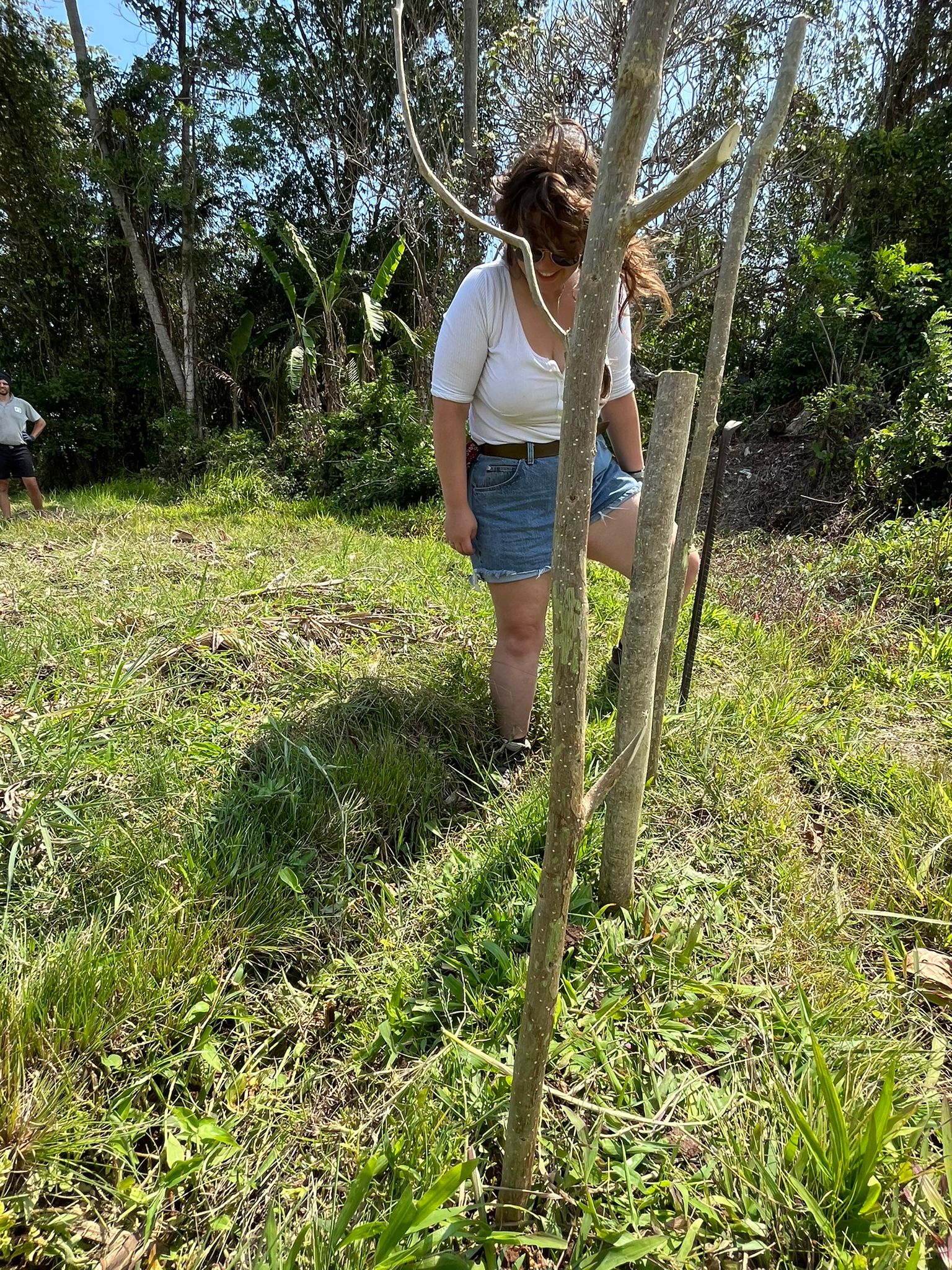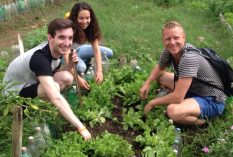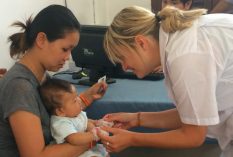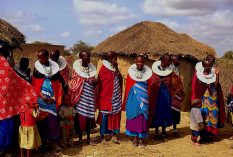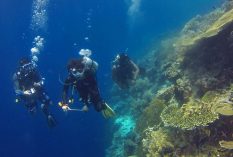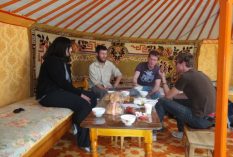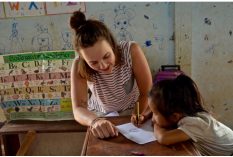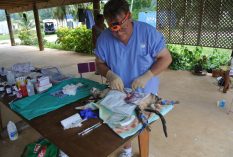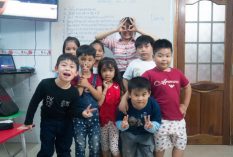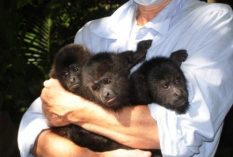Environmentalism includes real manual labor: getting your hands in the dirt, digging holes to plant trees, tasting soil and plants for pesticides; polluting yourself in the spirit of mediation. While there is a place for environmental protests and petitions, true change comes from knowing how it works. Working towards a world with cleaner food, air, water, roads, homes, and fields takes more change than one individual can possibly provide. Meeting others with similar goals and career aspirations is exactly what this experience has provided. I have had the privilege of being put in the paths of those who may not have always prepared to be a part of the earth rehabilitation process, but need access to those who have.
Sebastian:
Sebastian is a German technology expert who has moved to Bali and leased a plot of land in the heart of the Rice Bowl (Tegal Makan, Tebannon) that has been stripped of its water due to an unprecedented redirection of its water supply to a more touristy area. Sebastian is interested in converting his, once cornfield, plot of land into a thriving agroforestry system and permaculture center. With nothing but dead corn and a dozen terraces, I got to work. I used an aerial view of the property to map out the separate rice terraces and sections of the property that we would later use to identify locations for the key aspects of the project; a cow house, fish pond, azola patch, duck run, classroom, living kitchen, living pharmacy, living fence, subak, wind mill, parking area, bio-gas tank, rainwater collection system, and potentially a community trading center. Since then, my map has been used as a blueprint for the project.
Tri Sulan:
Tri is a Balinese adjerovetic doctor that has studied all around the world the art of alternative medicine and its real-life effectiveness on human health. He visited us one evening to share some of his wisdom as well as a sustainable and healthy solution to many of our home needs; it is known as an Eco-Enzyme. Tangentially related to compost, eco-enzymes can provide a clean alternative to household cleaners, laundry detergent, pesticides, toothpaste and so much more. I am currently assisting Tri with drafting an informational packet that can be given to anyone who has a goal for sustainability and a chemical free home.
Deirdre:
Deirdre moved to Bali over 30 years ago after spending a year abroad from her school in Florida, USA. After years of doing her day job in design, she invested in a plot of land high in the Grunung Batukau mountains where she grows coffee. This land is so raw that it doesn’t have a proper map in order to streamline its maintenance. With a team we were able to compile a rough map of the property along with a count of most of the coffee trees. With further data and renderings I will help provide an in-depth graphic of her property, making future projects more achievable.
Chakra:
Chakra has a huge heart; he has taken on the responsibility of cleaning up Bali and providing anyone who desires a more sustainable infrastructure a team to accomplish it. Chakra is an amazing teacher; he uses his gift of storytelling and background in applicable technology to spread his knowledge far and wide: a documentary team in Canada, a permaculture organization in Cambodia, schools in Australia. He has a vision for the future and works to inspire adaptations in technology around the globe. His projects have inspired even the most reputable of permaculture activists. However, not all who encounter him have the background to understand his vision: volunteers with no previous experience in earth science, ‘pilgrims’ who are more focused on the scenery than the story behind it, locals who are too distracted with their community to properly invest. With my background I have provided Chakra with a kindred sounding board, reminding him that he isn’t fighting alone. Reminding him that he does not have to have all the tools in order to fix everything.
I get a lot of questions from people wondering how they can do better for the environment, those who see the news and feel the dread of how humanity’s simple existence and advancement has turned earth into a floating cesspool of potential nuclear warfare in space filled with plastic seas. I also get a lot of gratitude from those I share my story with, reminding me that the task I have taken on and dedicated my entire life to is a big one – arguably the biggest one on the planet. This is interesting mostly because I did not do that well in school; I’m dyslexic, making my chemistry, math, and physics courses especially difficult. However it appears my grasp of the applicable concepts has allowed me to be a part of a dialogue that is making a movement in a more realistic manner. You see, traditionally scientists aren’t very easy to communicate with; they’re so smart, and their breakdown of concepts are so complex that often they isolate themselves to their research, but that’s not how real change gets done. My perspective has reached a plethora of individuals, and for an environmentalist, that’s all I could ask for. This project has achieved all that was promised and all that was expected of my time here in Bali: cultural submersion, real life perspectives of the islands, political disruptions, agricultural practices, but what I was not expecting was the rattling perspective of how tourism has affected the island and culture. I believe that an experience like this is the only real way someone can truly experience Bali, and would recommend this to anyone with plans to visit. However I would warn them of a few challenges:
- Learning to drive a moped here with no experience is like throwing a lvl. 1 character into a den full of lvl. 15 players. You will struggle, and it will be overwhelming; on my first outing on the scooter I crashed into a tree and was only stopped by a ditch – all three of us were damaged, the tree, the scooter, and me (mildly; walking away with a 12in bruise across my thigh). Freedom is not right at your fingertips, so beware.
- There are hundreds of different languages in Indonesia, studying some Indonesian may prove to be beneficial and is spoken by most, however you will encounter a lot of Bahasa as well, and there are no resources for learning it other than a local. There will also be plenty of confusion surrounding languages, you will be corrected over and over again by people from all over the world about what is really spoken here. Ultimately you will learn key terms in many different languages and that is okay. The Balinese people are some of the most welcoming and understanding people I have ever met: when you smile, they smile; you will often get ‘hello’s from children; if you get into an accident you will be surrounded by those willing to help; if you do not understand the language they will do their best to communicate and teach you.
- Side note: I have also never felt safer, while there was one instance where I was walking home from an event down a dark street and saw a group of men walking towards me (they were just walking home, they didn’t even acknowledge me). I only locked my door when I left town, I often slept with my door open (due to the dog I had briefly ‘adopted’), and when I went to the bathroom at restaurants I never felt the need to take my belongings. An extreme contrast to how I feel in my home country, the United States.
- Last, bring a mosquito net. Just do.
The impact that this project makes on the field is: cleaner water, sewage mediation, land rehabilitation, animal welfare, sustainable construction, community advocacy, sustainable food sources, and cultural preservation. Asking whether this project makes an impact on the field is a simple one: yes, and I am proud to have been a part of it. Without I Made Chakra’s projects and team, Bali would be all the more vulnerable to those who take advantage of their environment and people. With my background in Environmental Geoscience I was a clear asset to the team and I have since been requested for multiple consultations since the project has concluded.

